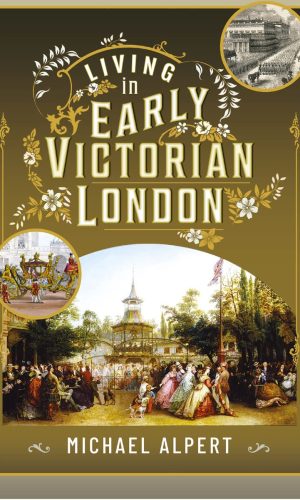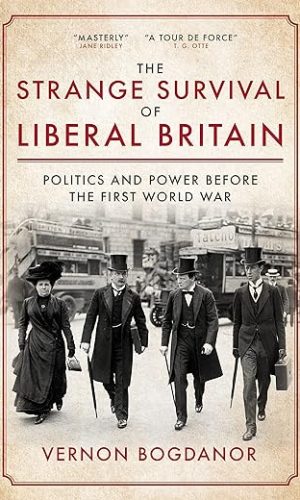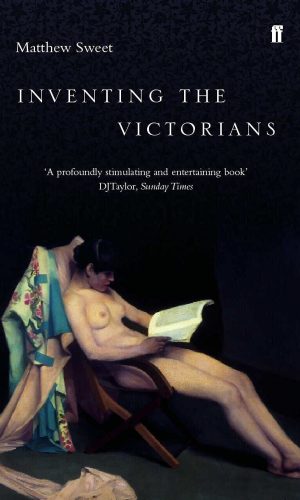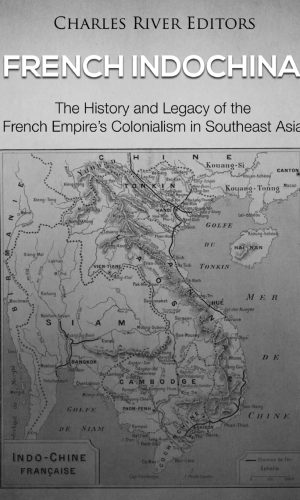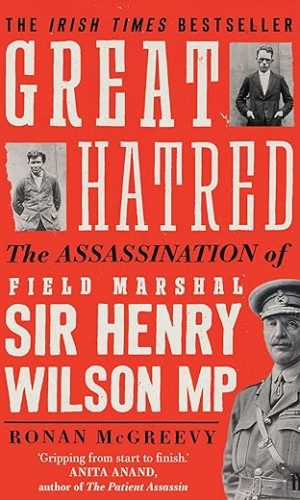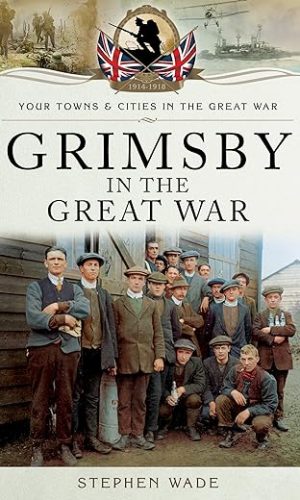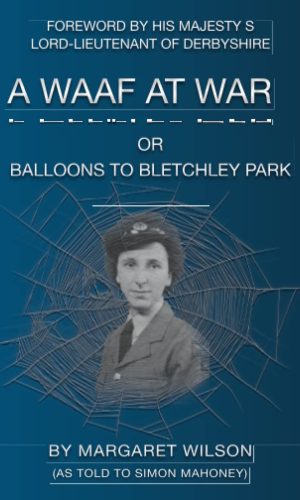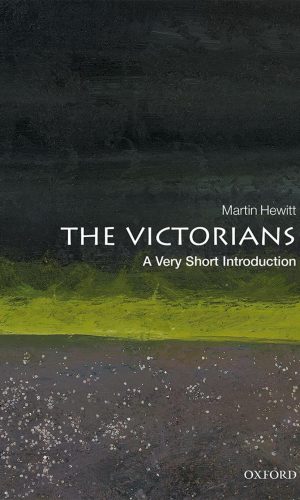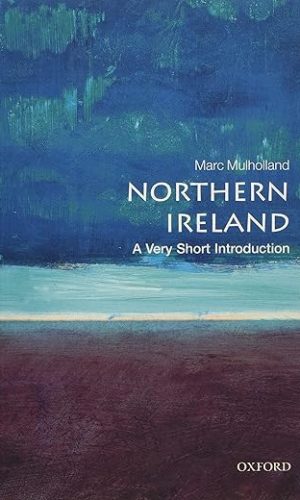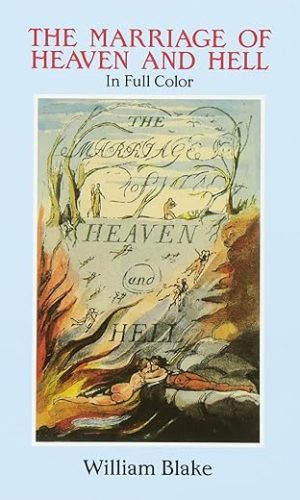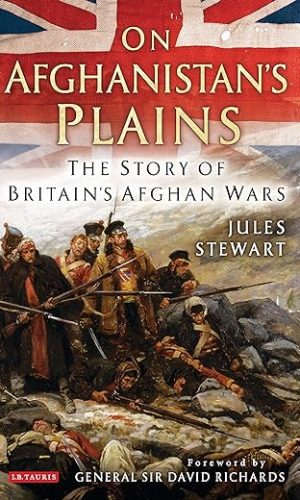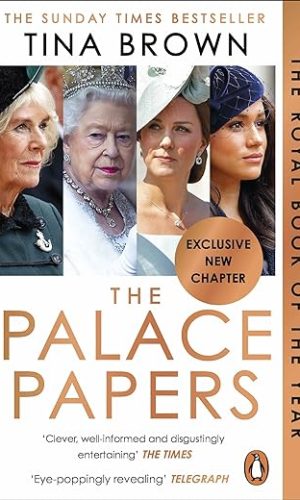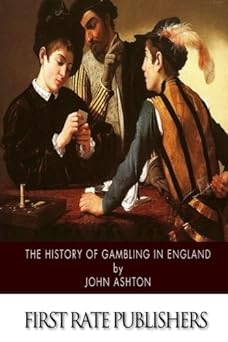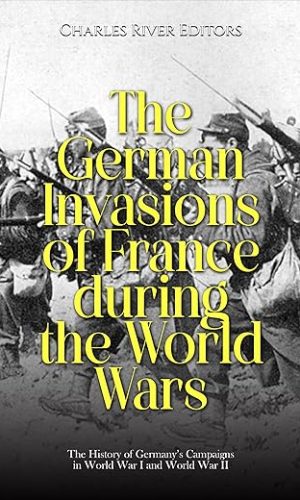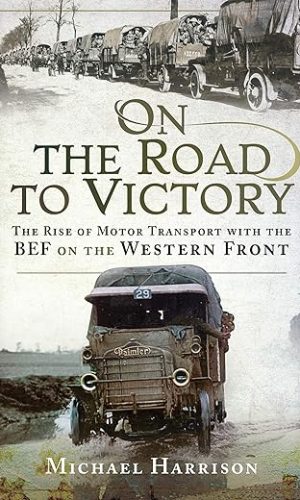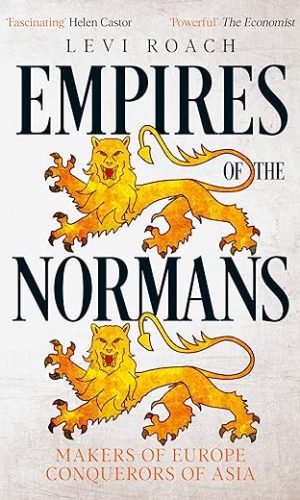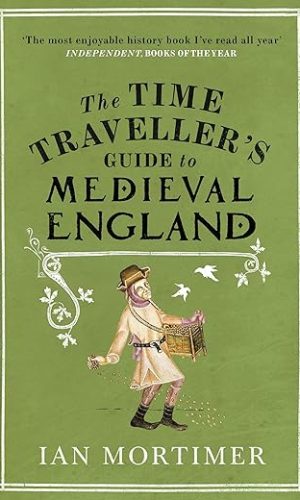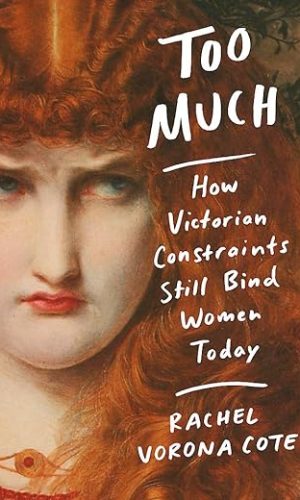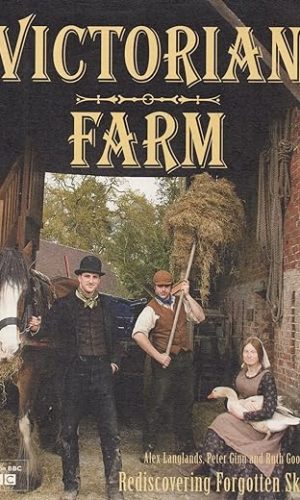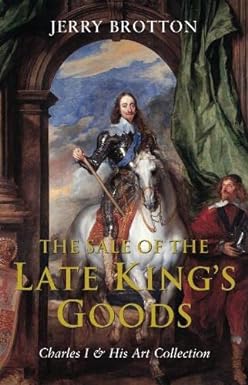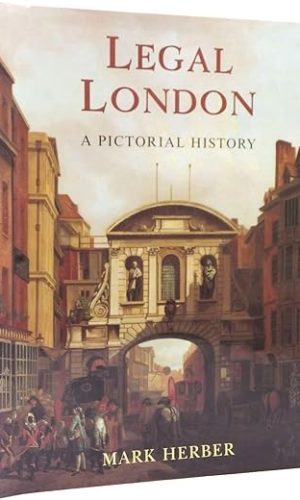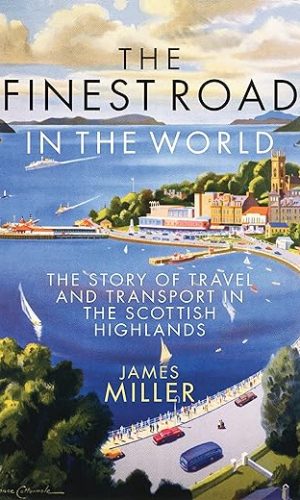Europe
-
Living in Early Victorian London
London in the 1840s was sprawling and smoke-filled, a city of extreme wealth and abject poverty. Some streets were elegant with brilliantly gas-lit shop windows full of expensive items, while others were narrow, fetid, muddy, and in many cases foul with refuse and human filth. Railways, stations and sidings were devouring whole districts and creating acres of slums or ‘rookeries’ into which the poor of the city were jammed and where crime, disease and prostitution were rife.The most sensational crime of the epoch, the murder of Patrick O’Connor by Frederick and Maria Manning, filled the press in the summer and autumn of 1849. Michael Alpert uses the trial record of this murder, accompanied by numerous other contemporary sources, among them journalism, diaries and fiction, to show how day-to-day lives, birth, death, sickness, work, shopping, cooking, and buying clothes, were lived in the crowded, noisy capital in the early decades of Victoria’s reign. These sources illustrate how ordinary people lived in London, their incomes, entertainments, religious practice, reading and education, their hopes and anxieties. Life in Early Victorian London reveals how ordinary people like the Mannings and thousands of others experienced their multifaceted lives in the greatest capital city of the world.
Early Victorian London lived on the cusp of great improvements, but it was a city which in some aspects was mediaeval. Its inhabitants enjoyed the benefit of the Penny Post and the omnibus, and they were protected to some extent by a police force. The Mannings fled their crime on the railway, were trapped by the recently-invented telegraph and arrested by ‘detectives’ (a new concept and word), but they were hanged in public as murderers had been for centuries, watched by a baying, drunken and swearing mob.
Read more
£8.50 -
Great Western Pannier Tank Classes: An Overview of Their Design & Development (Locomotive Portfolios)
This comprehensive and fully illustrated history presents an in-depth look at the Great Western Railway’s various pannier tank engines.
Though hauling freight was a vital part of Great Western Railway’s history—and where it made the majority of its profit—there are few books devoted to the stout, powerful engines that did the work. In Great Western, Pannier Tank Classes, British Railways expert David Maidment corrects that oversight. This volume explores the large number of 0-6-0 saddle tanks built for both the Great Western Railway and the independent railway companies in South Wales, most of which were converted to pannier tanks in the Churchward and Collett eras.
While covering the Armstrong and Dean engines in detail, Maidment goes on to describe the design, construction and operation of the largest class of steam engines built in the UK in the last century: Charles Collett’s GWR 5700 class, examples of which were still being built after nationalization. Collett also designed pannier tank engines for branch passenger and freight work, and his successor Frederick Hawksworth continued the GW tradition with a tapered boiler version. All of these are discussed in depth in terms of their design and service. A concluding chapter covers further designs that were never built.Read more
£8.50 -
The Strange Survival of Liberal Britain: Politics and Power Before the First World War
“Masterly … A fascinating tour d’horizon of the Edwardian political scene. This must be a definitive account.” – Professor Jane Ridley, author of George V: Never a Dull Moment
“A tour de force, sympathetic in its treatment of the subject, eminently wise in its judgement and invariably fair in its verdicts. It purrs along like a Rolls-Royce engine.” – Professor T. G. Otte, author of Statesman of Europe: A Life of Sir Edward Grey
“This brilliant book from Britain’s most important constitutional historian upends the orthodoxy about the decadent Edwardians. A masterpiece of intelligent history, both forceful and subtle, which transforms how we view not just those most complex Edwardians but also our own equally complex times.” – Professor Richard Aldous, author of The Lion and the Unicorn: Gladstone vs Disraeli
“Brilliant. Instantly the leading history of this turbulent and critical period in Britain’s transition towards a modern democracy.” – Professor Robert Blackburn, King’s College London
“Vernon Bogdanor has the habit of unearthing gems that have been missed by others. He does it again in this magisterial work on post-Gladstonian Britain by challenging some of the long-established myths about this period that deserve to be cast aside.” – Professor Malcolm Murfett, King’s College London
“Professor Bogdanor argues with conviction and sometimes passion but always with judiciousness and in the light of deep reflection. The result is a masterly work which speaks to the politics of our own time.” – Alvin Jackson, Richard Lodge Professor of History, University of Edinburgh
“An extraordinary exploration of a political world whose dynamics continue to shape the future of liberal constitutionalism.” – Bruce Ackerman, Sterling Professor of Law and Political Science, Yale University
“Crisp, authoritative and lucid.” – Nicholas Owen, associate professor of politics, University of Oxford
The turbulent years of 1895 to 1914 changed Britain’s political landscape for ever. They saw a transition from aristocratic rule to mass politics and heralded a new agenda which still dominates today. The issues of the period – economic modernisation, social welfare and equality, secondary and technical education, a new role for Britain in the world – were complex and difficult. Indeed, they proved so thorny that despite the efforts of the Edwardians they remain among the most pressing problems we face in the twenty-first century.
The period has often been seen as one of decadence, of the strange death of liberal Britain. In contrast, Vernon Bogdanor believes that the robustness of Britain’s parliamentary and political institutions and her liberal political culture, with the commitment to rational debate and argument, were powerful enough to carry her through one of the most trying periods of her history and so make possible the remarkable survival of liberal Britain.
In this wide-ranging and sometimes controversial survey, one of our pre-eminent political historians dispels the popular myths that have grown up about this critical period in Britain’s story and argues that it set the scene for much that is laudable about our nation today.
Read more
£8.50£33.30 -
Inventing the Victorians
Suppose that everything we think we know about ‘The Victorians’ is wrong? That we have persistently misrepresented the culture of the Victorian era, perhaps to make ourselves feel more satisfyingly liberal and sophisticated? What if they were much more fun than we ever suspected? Matthew Sweet’s Inventing the Victorians has some revelatory – and entertaining – answers for us.
As Sweet shows us in this brilliant study, many of the concepts that strike us as terrifically new – political spin-doctoring, extravagant publicity stunts, hardcore pornography, anxieties about the impact of popular culture upon children – are Victorian inventions. Most of the pleasures that we imagine to be our own, the Victorians enjoyed first: the theme park, the shopping mall, the movies, the amusement arcade, the crime novel and the sensational newspaper report. They were engaged in a well-nigh continuous search for bigger and better thrills. If Queen Victoria wasn’t amused, then she was in a very small minority . . .
Matthew Sweet’s book is an attempt to re-imagine the Victorians; to suggest new ways of looking at received ideas about their culture; to distinguish myth from reality; to generate the possibility of a new relationship between the lives of nineteenth-century people and our own.
Read more
£8.30£10.40Inventing the Victorians
£8.30£10.40 -
Rugby Town: The Sporting History of D4
Dublin 4, probably best-known in sporting terms as the spiritual home of Leinster Rugby, has one of the highest densities of diverse sports clubs in all of Ireland. In this new work from Kurt Kullmann, a founding member of the Donnybrook, Ballsbridge and Sandymount Historical Society, the author explores the history of these clubs, creating a picture of the kaleidoscopic nature of Dublin’s sporting culture.
Read more
£8.20£17.10Rugby Town: The Sporting History of D4
£8.20£17.10 -
French Indochina: The History and Legacy of the French Empire’s Colonialism in Southeast Asia
*Includes pictures
*Includes online resources and a bibliography for further reading
“Without Empire France today would only be a liberated country. Thanks to her Empire she is today a victorious country.” – French Guianan lawyer and politician, Gaston Monnerville
The U.S. Naval Station Argentia, located in Placentia Bay, a sheltered harbor on Newfoundland Island, was the unlikely setting for one of the most pivotal summit meetings of the 20th century. The meeting took place on August 9, 1941. World War II was in its second year, the British had won the Battle of Britain, but were still encircled by German U-Boats, and the British fleet was being decimated in the North Atlantic. In North Africa, a contest of armor was underway as Axis and Allied armies fought for control of Egypt, while Britain and her Commonwealth allies stood alone against the mighty German Wehrmacht.
Roosevelt, however, pictured a very different post-war world than his British counterpart, Winston Churchill. When he and Churchill met at what came to be known as the Atlantic Conference, Churchill’s pleas for U.S. manpower and aid were accepted, but only under clear conditions. If the United States was to come to the aid of Britain, it would be for the purpose of defeating the Germans and the Japanese and not to support the insupportable institutions of empire. Britain and, by extension, France and Portugal, the only remaining major European shareholders in foreign empire, would have to commit to decolonization as a basic prerequisite of substantial U.S. assistance.
Churchill, a vocal and forceful proponent of empire and a man of the generation that had conquered the world, did not receive this news well. On the other side of the world, British and allied European Asian colonies lay very much in the path of the Japanese imperial march into Southeast Asia. However, as the inevitability of war grew daily, the nationalist movement in India was also beginning to gather pace. Without India and Indian manpower, war with Japan would be lost before it could begin. The Indians in a sense could hold the British hostage, and ultimately, in exchange for Indian cooperation in the war, the British would first have to commit to a post-war independence process.
Meanwhile, the British were not the only European power to take note of this development. The French too were a major imperial power with a great deal to lose from such a monumental change, but their view of the global chessboard was somewhat different. France lay under German occupation, and an armistice had been signed on behalf of the French nation by Marshall Philippe Pétain, commencing the era of Vichy France. In London, meanwhile, the firebrand French General Charles de Gaulle urged a continuation of the resistance, believing the French mainland to be only a small part of the picture. France was much more than just France. De Gaulle established the Free French movement in Britain, based on the loyalty and the ongoing Free French control of a majority of her overseas territories. The Free French movement and the Free French army based themselves in Francophone Africa. The saga of the Free French movement would impact the war in both North Africa and Europe, but most specifically, it would serve to radically redefine the French view of itself and her relationship with her overseas territories. Most importantly, it would set the tone for a style of decolonization very different from the British, and perhaps not surprisingly, things would not go smoothly, especially with the geopolitics of the Cold War affecting matters.
French Indochina: The History and Legacy of the French Empire’s Colonialism in Southeast Asia analyzes the colonization of Southeast Asia and what happened as a result of the decolonization. Along with pictures of important people, places, and events, you will learn about the French in Southeast Asia like never before.Read more
£8.00 -
Medical Services in the First World War (Shire Library)
The number of wounded in the First World War was unprecedented, and inadequate military planning presented the medical and voluntary community with huge and daunting challenges. Yet in the face of tremendous adversity both tackled their work with resourcefulness, courage and great humanity. This book is the illustrated story of those who risked their lives collecting casualties from the front line, of the various transport and treatment facilities at their disposal and of the eclectic mix of buildings in which the wounded were cared for at home, including many famous country houses. The vital part played by nurses, both in terms of essential medical duties and in boosting morale among the patients, is also examined, rounding off this perfect introduction to medical care in the First World War.Read more
£7.60£8.50 -
The Royal Navy Officer’s Pocket-Book
“”The art of command is.to be the complete master, and yet the complete friend of every man on board; the temporal lord and yet the spiritual brother of every rating; to be detached and yet not dissociated.’
A Seaman’s Pocket-Book, 1943′, has found huge appeal with the British public. Presented in the same format, the Officer’s Handbook gathers together useful advice and instruction for those naval officers fighting the Second World War on all aspects of their job, expressed in the benevolent language of the day, when authority was respected.
The Handbook has been compiled and edited by Brian Lavery, who provides commentary and an introduction. Sections include: the Officer’s Aid Memoire containing notes of the training course at one of the officer training schools; Notes for medical officers and treatment of battle casualties afloat; Notes for captains on taking command of their first ship; Notes for commanding officers; Notes on the handling and safety of ships and notes on dealing with disobedience and mutiny.
While suffused with nostalgia and charm, the various contents of this book are an authentic presentation of matters of training, authority and deportment in the wartime navy. The book is sure to appeal not only to those who served in the war or had a relative who was in the officer class, but also to anyone who wants to gain a greater understanding of the day-to-day administration of the wartime navy.Read more
£7.60£9.50The Royal Navy Officer’s Pocket-Book
£7.60£9.50 -
Great Hatred: The Assassination of Field Marshal Sir Henry Wilson MP
THE IRISH TOP 10 BESTSELLER
A gripping investigation into one of Irish history’s greatest mysteries, Great Hatred reveals the true story behind one of the most significant political assassinations to ever have been committed on British soil.
‘Heart-stopping . . . The book is both forensic and a page-turner, and ultimately deeply tragic, for Ireland as much as for the murder victim.’
MICHAEL PORTILLO‘Gripping from start to finish. McGreevy turns a forensic mind to a political assassination that changed the course of history, uncovering a trove of unseen evidence in the process.’
ANITA ANAND, author of The Patient Assassin‘Invaluable.’ IRISH TIMES
‘Intelligent and insightful.’ IRISH INDEPENDENT
On 22 June 1922, Sir Henry Wilson – the former head of the British army and one of those credited with winning the First World War – was shot and killed by two veterans of that war turned IRA members in what was the most significant political murder to have taken place on British soil for more than a century. His assassins were well-educated and pious men. One had lost a leg during the Battle of Passchendaele. Shocking British society to the core, the shooting caused consternation in the government and almost restarted the conflict between Britain and Ireland that had ended with the Anglo-Irish Treaty just five months earlier. Wilson’s assassination triggered the Irish Civil War, which cast the darkest of shadows over the new Irish State.
Who ordered the killing? Why did two English-born Irish nationalists kill an Irish-born British imperialist? What was Wilson’s role in the Northern Ireland government and the violence which matched the intensity of the Troubles fifty years later? Why would Michael Collins, who risked his life to sign a peace treaty with Great Britain, want one of its most famous soldiers dead, and how did the Wilson assassination lead to Collins’ tragic death in an ambush two months later?
Drawing upon newly released archival material and never-before-seen documentation, Great Hatred is a revelatory work that sheds light on a moment that changed the course of Irish and British history for ever.
‘McGreevy provides more than the anatomy of a political murder; in reconstructing this era of blood, poverty and wartime trauma, he also gives full expression to the terrible forces that WB Yeats once called the “fanatic heart” and the “great hatred”.’
THE TIMES‘Thoughtful and well-researched . . . an important and valuable addition to the library of the Irish Revolution.’
PROFESSOR DIARMAID FERRITER, University College DublinRead more
£7.30£10.40 -
Grimsby in the Great War (Your Towns and Cities in the Great War)
An account of the Home Front experience in Grimsby.Read more
£7.20£9.50 -
The English Civil War in 100 Facts
The English Civil War pitted Parliament against the Crown following a breakdown in their relationship, ultimately caused by a struggle over power, religion and control. The Civil War split the country and resulted in the execution of Charles I and the exile of his son, and the English monarchy was replaced first by the Commonwealth of England and then the Protectorate. Oliver Cromwell dominated the politics of the new rule and still divides opinion today, with some seeing him as a brutal dictator and others seeing him as a hero of liberty. The English Civil War in 100 Facts examines the twenty years of intermittent warfare, covering the first, second and third wars, from the initial conflict with Charles I to the fight of Charles II’s supporters with the Rump Parliament. Dr Andrew Lacey guides us through some of the key figures and their stories as well as some of the key battles and politics in this period that drastically altered the structure of English rule.Read more
£7.10£8.50The English Civil War in 100 Facts
£7.10£8.50 -
A WAAF AT WAR: OR BALLOONS TO BLETCHLEY PARK
This is Margaret’s story, an ordinary young woman from the shires who voluntarily joined the war against Germany and the Nazi Party.
It is a story that takes us from a small rural coal mining town to the sheer hard graft of handling highly hazardous barrage balloons, a sojourn at an operational bomber base.
From there we are taken into the almost monastic world of signals intelligence collection at Bletchley Park. Not for her the interminable copying of sacred texts, rather the transcribing of enemy signal traffic.
To this day Margaret will not talk about her work at Bletchley Park in any detail. This has caused frustration amongst historians, including Bletchley Park itself.
Winston Churchill described the young women at Bletchley as ‘the geese that laid the golden eggs and never cackled.’
And so it has proved.
Read more
£7.10 -
The Victorians: A Very Short Introduction (Very Short Introductions)
bVery Short Introductionsb: Brilliant, Sharp, Inspiring /bThe Victorian period may have come to an end over 120 years ago, but the Victorians continue to be a vital presence in the modern world. Contemporary Britain is still in large part Victorian in its transport networks, sewage systems, streets, and houses. Victorian cultural legacies, especially in art, science, and literature, are still celebrated. The first to have to grapple with many of the challenges of modern urban society, we continue to look to the Victorians for inspiration and solace. And we are increasingly aware of the ways their global actions shaped, often for ill, the world around us. Much mythologised, inexhaustibly controversial, the Victorians are an inescapable reference point for understanding the modern histories not just of Britain and its empire, but of the world.
In The Victorians: A Very Short Introduction Martin Hewitt offers a guide through the thickets of judgement and debate which have grown around the period and its people, to offer a historical overview of the Victorians and their legacies. He seeks to answer five crucial questions. Why have the Victorians continued occupy such a prominent place in the cultures of not just the anglophone world? How far does it make sense to think of a 64-year period arbitrarily given an identity by the longevity of the Queen as an identifiable historical period in a general sense? How justified are the value-laden versions of the Victorians which argue for the existence of a particular world view called ‘Victorianism’? Beyond ideology, what was Victorian Britain actually like – and in particular, what was distinctive about it? Who were the Victorians – not just the eminent few, but the population as a whole? And finally, how far and with what results did the Victorians and their culture spread across the globe?
In answering these questions, Hewitt cautions against some long-held orthodoxies, throws a light on some less well-known aspects of the period, and urges the importance of understanding the Victorians on their own terms if we are to effectively engage with their legacies.
ABOUT THE SERIES: The Very Short Introductions series from Oxford University Press contains hundreds of titles in almost every subject area. These pocket-sized books are the perfect way to get ahead in a new subject quickly. Our expert authors combine facts, analysis, perspective, new ideas, and enthusiasm to make interesting and challenging topics highly readable.
Read more
£7.10£8.50 -
Northern Ireland: A Very Short Introduction (Very Short Introductions)
From the Plantation of Ulster in the seventeenth century to the entry into peace talks in the late twentieth century the Northern Irish people have been engaged in conflict – Catholic against Protestant, Republican against Unionist. The traumas of violence in the Northern Ireland Troubles have cast a long shadow. For many years, this appeared to be an intractable conflict with no pathway out. Mass mobilisations of people and dramatic political crises punctuated a seemingly endless succession of bloodshed. When in the 1990s and early 21st century, peace was painfully built, it brought together unlikely rivals, making Northern Ireland a model for conflict resolution internationally.But disagreement about the future of the province remains, and for the first time in decades one can now seriously speak of a democratic end to the Union between Northern Ireland and Great Britain as a foreseeable possibility. The Northern Ireland problem remains a fundamental issue as the United Kingdom recasts its relationship with Europe and the world. In this completely revised edition of his Very Short Introduction Marc Mulholland explores the pivotal moments in Northern Irish history – the rise of republicanism in the 1800s, Home Rule and the civil rights movement, the growth of Sinn Fein and the provisional IRA, and the DUP, before bringing the story up to date, drawing on newly available memoirs by paramilitary militants to offer previously unexplored perspectives, as well as recent work on Nothern Irish gender relations. Mulholland also includes a new chapter on the state of affairs in 21st Century Northern Ireland, considering the question of Irish unity in the light of both Brexit and the approaching anniversary of the 1921 partition, and drawing new lessons for the future.
ABOUT THE SERIES: The Very Short Introductions series from Oxford University Press contains hundreds of titles in almost every subject area. These pocket-sized books are the perfect way to get ahead in a new subject quickly. Our expert authors combine facts, analysis, perspective, new ideas, and enthusiasm to make interesting and challenging topics highly readable.
Read more
£7.10£8.50 -
The Big Book of History Crosswords: 51 Themed Crossword Puzzles and Fun Facts for History Lovers
Think you know your history? This bumper collection of 51 fun, fiendish crossword puzzles will challenge your knowledge of everything from Ancient Rome to the Arab Spring, from the Aztecs to the internet, from the Stone Age to the Jazz Age, and from Timbuktu to outer space.
Spanning centuries and ranging across continents, each crossword has something for everyone – whether you’re a keen quizzer, fancy yourself as a history expert, or are just fascinated by our shared past. Test yourself on historic battles, ancient cultures, earth-shaking revolutions and amazing inventions; play against the clock, or just against yourself. Open up a whole world of historical discovery. Let’s get puzzling!
- Absorbing puzzles on a large 17×17 grid
- A wide variety of questions across 14 history themes
- Over 860 quiz-style clues
- Clues and crossword grid are conveniently on the same page for each puzzle
- Solutions provided at the back of the book
- Fun facts every 2 puzzles to teach you something interesting you didn’t know before!
- The perfect gift for adult history fans
- All puzzles are in British English
Get 19 FREE bonus crosswords with this book! As a thank you for purchasing this book, we are giving away 19 FREE crosswords in a printable format for you test your history knowledge on hundreds more clues. The download link is provided in the book.
Read more
£6.60 -
No Borders: Playing Rugby for Ireland (Behind the Jersey Series)
Winner of Cross Sports Rugby Book of the Year 2016
From Jack Kyle’s immortals to Brian O’Driscoll’s golden generation, this is the story of Irish rugby told in the players’ words. Celebrated rugby writer Tom English embarks on a pilgrimage through the four provinces to reveal the fascinating and illuminating story of playing test rugby in the emerald green of Ireland – all the glory of victory, all the pain of defeat, and all the craic behind the scenes. But this is more than just a nostalgic look back through the years, it is a searing portrait of the effects of politics and religion on Irish sport, a story of great schisms and volatile divisions, but also as story of the profound unity, passionate friendships and the bonds of a brotherhood. With exclusive new interview material with a host of Ireland rugby greats, No Borders unveils the compelling truth of what it means to play for Ireland at Lansdowne Road, Croke Park and around the world. This is the ultimate history of Irish rugby – told, definitively, by the men who have been there and done it.
Read more
£6.50 -
The Marriage of Heaven and Hell: A Facsimile in Full Color (Dover Fine Art, History of Art)
This vivid facsimile of Blake’s romantic and revolutionary publication offers a concise expression of his essential wisdom and philosophy. His distinctive hand-lettered text is accompanied by 27 color plates of his stirring illustrations.Read more
£6.50£7.10 -
Victorian London Scenes: Journey Through The Charming Victorian Of London Coloring Book For Adults
Immerse yourself in the charm and elegance of a bygone era with “Victorian London Scenes : Journey Through The Charming Victorian Of London Coloring Book For Adults,” an exquisitely crafted coloring book that transports you back to the enchanting world of 19th-century England. Step into the bustling streets of Victorian London and experience the rich history, architectural marvels, and bustling life of this iconic city.Each illustration takes you on a journey through time, showcasing iconic landmarks, bustling London Street, serene town, and the Victorian life. As you bring these scenes to life with your artistic touch, you’ll find yourself strolling along cobblestone streets lined with elegant townhouses, ornate lampposts, and majestic cathedrals. Immerse yourself in the vibrant energy of the city, as horse-drawn carriages pass by, and finely dressed ladies and gentlemen promenade through the city.
Whether you’re seeking relaxation, a trip through history, or a unique way to explore Victorian London, this coloring book will be your perfect companion. Allow your creativity to flourish and your imagination to wander as you embark on this delightful coloring journey through the enchanting streets of Victorian London. So, pick up your favorite coloring tools and immerse yourself in the romance and elegance of this extraordinary era. Let the enchanting world of “Victorian London Scenes” unfold before your eyes!
Read more
£6.20 -
British Buses Since 1950: Trendsetting Designs (Britain’s Buses Series)
Bus design has certainly evolved in the seven decades since 1950, but it has not been a steady process. Advances in bus design have caused manufacturers to rush back to the drawing board for fear of being left behind. In 1950, the first of the new breed of underfloor-engined single-deckers appeared, and, just six years later, came the first rear-engined double-decker. Buses got longer, and one result in the 1960s was a rash of new rear-engined single-deck models. Efforts to make buses accessible for all passengers led to low-floor models in the 1990s, and then, in the 2000s, concerns about the environment prompted diesel-electric hybrid, gas, electric and hydrogen buses. Covering the designs that led the way with varying degrees of success over the past 70 years, and illustrated with over 170 colour images and period advertisements, this book showcases the good, the bad and the ugly of British bus design.Read more
£6.20 -
On Afghanistans Plains: The Story of Britains Afghan Wars
Britain’s military involvement in Afghanistan is a contentious subject, yet it is often forgotten that the current conflict is in fact the fourth in a string of such wars dating back more than 170 years. Aiming to protect British India from the expanding Russian empire, the British fought a series of conflicts on Afghan territory between 1838 and 1919. The Anglo-Afghan wars of the 19th and early 20th centuries were ill-conceived and led to some of the worst military disasters ever sustained by British forces in this part of the world, with poor strategy in the First Afghan War resulting in the annihilation of 16,000 soldiers and civilians in a single week. In his new book, Jules Stewart explores the potential danger of replaying Britain’s military catastrophes and considers what can be learnt from revisiting the story of these earlier Afghan wars.Read more
£5.70£11.40 -
The Palace Papers: The Sunday Times bestseller
WITH AN EXCLUSIVE NEW CHAPTER FOR THE PAPERBACK EDITION
The Amazon No.1 Bestseller
The Sunday Times BestsellerTHE ROYAL BOOK OF THE YEAR
_________________________________‘Eye-poppingly revealing. . . impeccable sources, historical heft and canny insights served up with a zingy wit. There are many royal biographers, but few as good as this. She turns gossip into the first draft of history.’ TELEGRAPH
From the Queen’s stoic resolve to the crisis of Meghan and Harry. From the ascendance of Camilla and Kate to the downfall of Andrew. Full of remarkable inside access, The Palace Papers by Sunday Times bestselling author Tina Brown will change how you understand the Royal Family.
‘Clever, well-informed and disgustingly entertaining’ THE TIMES
‘There are royal books, and there are royal books. But The Palace Papers is in a genre of its own’ RADIO TIMES
‘Jaw dropping! What a book . . . if you ever want to feel like a fly on the wall of any of the palaces, this is it.’
LORRAINE KELLY‘Brown’s prose has the swoosh of an enjoyably OTT ballgown’ FINANCIAL TIMES
‘The world’s sharpish and best-informed royal expert’ PIERS MORGAN
‘Riveting and rigorous’ PANDORA SYKES
‘A witty, rip-roaring read . . . full off perceptive and witty observations’ i Newspaper
‘A rollicking ride through recent royal family history . . . Tina Brown’s sparkling prose and eye for detail enliven an entertaining exposé’ OBSERVER
‘The most explosive royal book of the year’ THE SUN
‘Gloriously irreverent, racily written and often very funny. The early chapters on the long affair between Prince Charles and Camilla read like a non-fiction version of Jilly Cooper’s Rutshire Chronicles’ NEW STATESMAN
‘A motherlode of delectable gossip . . . Brown has produced a work both scholarly and scandalous that makes us think about what the post-Elizabethan world may bring, alternately amusing and horrifying us along the way . . . vivid and richly-embroidered’ INDEPENDENT
‘The devil is in the delicious detail . . . Brown tackles her subjects with the same brio she brought to her years as a highly regarded magazine editor . . . Her access to those who flit around the royals gives her writing an edgy authenticity’ DAILY MAIL
‘Brown thrashes her way through absolutely everything that has happened to the family since the end of the last book in 1997 . . . Charles and Camilla are vividly brought to life in a series of well-researched stories and anecdotes’ SUNDAY TIMES
‘The Palace Papers is a sharp-nibbed observation of a generation of tumult for the House of Windsor, bookended by the deaths of Princess Diana and Prince Philip. It’s a story about media as much as monarchy, and it draws from almost every chapter in Brown’s career in journalism’ FINANCIAL TIMES
‘It’s hard to look away as Tina Brown delves into decades’ worth of royal scandals’ GUARDIAN
‘Utter brilliance . . . a rip-roaring read’ SCOTSMAN
‘A brilliant book. Tina Brown has inside knowledge and writes so well’ LADY ANNE GLENCONNER (author of Lady in Waiting)
_________________________________
‘Never again’, became Queen Elizabeth II’s mantra shortly after Diana’s death. More specifically, there could never be ‘another Diana’ – a member of the family whose global popularity upstaged, outshone, and posed an existential threat to the British monarchy. Picking up where The Diana Chronicles left off, The Palace Papers reveals how the royal family reinvented itself after the traumatic years when Diana’s blazing celebrity ripped through the House of Windsor like a comet.
Tina Brown takes readers on a tour de force journey that shows the Queen’s stoic resolve as she coped with the passing of Princess Margaret, the Queen Mother and her partner for seven decades, Prince Philip, and triumphed in her Jubilee years even as the family dramas raged around her. She explores Prince Charles’s determination to make Camilla his queen, the tension between William and Harry who are on ‘different paths’, the ascendance Kate Middleton, the disturbing allegations surrounding Prince Andrew and Jeffrey Epstein, and Harry and Meghan’s stunning decision to ‘step back’ as senior royals. Despite the fragile monarchy’s best efforts, ‘never again’ seems fast approaching.
Read more
£5.70£10.40The Palace Papers: The Sunday Times bestseller
£5.70£10.40 -
Zulu
Saul David’s Zulu: The Heroism and Tragedy of the Zulu War of 1879 is a fascinating look at the most controversial and brutal British imperial conflict of the nineteenth century.
The real story of the Anglo-Zulu war was one of deception, dishonour, incompetence and dereliction of duty by Lord Chelmsford who invaded Zululand without the knowledge of the British Government. But it did not go to plan and there were many political repercussions. Using new material from archives in Britain and South Africa, Saul David blows the lid on this most sordid of imperial wars and comes to a number of startling new conclusions.
‘Saul David’s brilliant and magisterial account must now be regarded as the definitive history of the Zulu War’ Frank McLynn, Literary Review
‘This meticulously detailed book…give[s] a fully rounded and judicious account of this dismal conflict Guardian
‘Fascinating, thrilling, convincing… reads like a novel’ Economist
Saul David is Professor of War Studies at the University of Buckingham and the author of several critically acclaimed history books, including The Indian Mutiny: 1857 (shortlisted for the Westminster Medal for Military Literature), Zulu: The Heroism and Tragedy of the Zulu War of 1879 (a Waterstone’s Military History Book of the Year) and, most recently, Victoria’s Wars: The Rise of Empire.
Read more
£5.40£12.30Zulu
£5.40£12.30 -
The History of Gambling in England
This is a history of different types of gambling over the centuries in England, from cards to horse races. From the intro: “Gaming is derived from the Saxon word Gamen, meaning joy, pleasure, sports, or gaming—and is so interpreted by Bailey, in his Dictionary of 1736; whilst Johnson gives Gamble—to play extravagantly for money, and this distinction is to be borne in mind in the perusal of this book; although the older term was in use until the invention of the later—as we see in Cotton’s Compleat Gamester (1674), in which he gives the following excellent definition of the word:—“Gaming is an enchanting witchery, gotten between Idleness and Avarice: an itching disease, that makes some scratch the head, whilst others, as if they were bitten by a Tarantula, are laughing themselves to death; or, lastly, it is a paralytical distemper, which, seizing the arm, the man cannot chuse but shake his elbow. It hath this ill property above all other Vices, that it renders a man incapable of prosecuting any serious action, and makes him always unsatisfied with his own condition; he is either lifted up to the top of mad joy with success, or plung’d to the bottom of despair by misfortune, always in extreams, always in a storm; this minute the Gamester’s countenance is so serene and calm, that one would think nothing could disturb it, and the next minute, so stormy and tempestuous that it threatens destruction to itself and others; and, as he is transported with joy when he wins, so, losing, is he tost upon the billows of a high swelling passion, till he hath lost sight, both of sense and reason.” Gambling, as distinguished from Gaming, or playing, I take to mean an indulgence in those games, or exercises, in which chance assumes a more important character; and my object is to draw attention to the fact, that the money motive increases, as chance predominates over skill. It is taken up as a quicker road to wealth than by pursuing honest industry, and everyone engaged in it, be it dabbling on the Stock Exchange, Betting on Horse Racing, or otherwise, hopes to win, for it is clear that if he knew he should lose, no fool would embark in it. The direct appropriation of other people’s property to one’s own use, is, undoubtedly, the more simple, but it has the disadvantage of being both vulgar and dangerous; so we either appropriate our neighbour’s goods, or he does ours, by gambling with him, for it is certain that if one gains, the other loses. The winner is not reverenced, and the loser is not pitied. But it is a disease that is most contagious, and if a man is known to have made a lucky coup, say, on the Stock Exchange, hundreds rush in to follow his example, as they would were a successful gold field discovered—the warning of those that perish by the way is unheeded.”Read more
£5.20 -
The Napoleonic Wars (1805 – 1815)
The Napoleonic Wars (1805 – 1815) were an epoch of unprecedented upheaval and destruction that reshaped the landscape of the history of ancient France and the broader European continent. In this comprehensive book, we embark on a captivating journey through this tumultuous decade, offering a detailed exploration of the triumphs and tragedies that marked Napoleon Bonaparte’s reign as the self-crowned Emperor of the French.
From the brilliance of Napoleon’s early victories, including his masterpiece at Austerlitz in 1805 and the smashing of Prussia at Jena in 1806, to the catastrophic invasion of Russia in 1812 and the bloodiest day at Borodino, we traverse the peaks and valleys of his fortunes. This narrative takes us through the horrors of the French occupation of Spain and Portugal, the great struggles of 1813, and Napoleon’s doomed defense of Paris in 1814. Along this historical voyage, we encounter moments of military genius and fatal blunders that left an indelible mark on the history of ancient France.
The climax of this narrative occurs in 1815, where we bear witness to history’s most renowned generals meeting on the battlefield for the first and only time: Napoleon Bonaparte, Emperor of the French, and the Duke of Wellington. The epic and brutal Battle of Waterloo unfolds, ultimately determining the fate of Europe.
This book provides a comprehensive chronicle of the entire span of the Napoleonic Wars, from the zenith of Napoleon’s power in 1805 to his final defeat at Waterloo in 1815. It is a compelling journey through one of the most captivating and tumultuous periods in history, interwoven with the grand campaigns, dramatic battles, and the rise and fall of an extraordinary leader, all set against the backdrop of the history of ancient France.
Order your copy now!
Read more
£4.70 -
The German Invasions of France during the World Wars: The History of Germany’s Campaigns in World War I and World War II
World War I, also known in its time as the “Great War” or the “War to End all Wars”, was an unprecedented holocaust in terms of its sheer scale. Fought by men who hailed from all corners of the globe, it saw millions of soldiers do battle in brutal assaults of attrition which dragged on for months with little to no respite. Tens of millions of artillery shells and untold hundreds of millions of rifle and machine gun bullets were fired in a conflict that demonstrated man’s capacity to kill each other on a heretofore unprecedented scale, and as always, such a war brought about technological innovation at a rate that made the boom of the Industrial Revolution seem stagnant. The enduring image of World War I is of men stuck in muddy trenches, and of vast armies deadlocked in a fight neither could win. It was a war of barbed wire, poison gas, and horrific losses as officers led their troops on mass charges across No Man’s Land and into a hail of bullets.If trench warfare was an inevitability during the war, it is only because the events leading up to the First Battle of the Marne were quite different. The armies at the beginning of the war moved quickly through the land, but the First Battle of the Marne devolved into a bloody pitched battle that led to the construction of trenches after the Germans retreated, blocked in their pursuit of Paris. When the aftermath disintegrated into a war between trenches, some Germans thought they had the upper hand since they were occupying French territory, but with fewer soldiers than the combined Allied nations and fewer resources and supplies, it was possibly only a matter of time before they were ultimately defeated. The commander of the German armies, General Helmuth von Moltke, allegedly said to Kaiser Wilhelm II immediately after the First Battle of the Marne, “Your Majesty, we have lost the war.” Winston Churchill himself would later reference that anecdote, writing, “Whether General von Moltke actually said to the Emperor, ‘Majesty, we have lost the war,’ we do not know. We know anyhow that with a prescience greater in political than in military affairs, he wrote to his wife on the night of the 9th, ‘Things have not gone well. The fighting east of Paris has not gone in our favour, and we shall have to pay for the damage we have done.’”
One of the most famous people in the world came to tour the city of Paris for the first time on June 28, 1940. Over the next three hours, he rode through the city’s streets, stopping to tour L’Opéra Paris. He rode down the Champs-Élysées toward the Trocadero and the Eiffel Tower, where he had his picture taken. After passing through the Arc de Triomphe, he toured the Pantheon and old medieval churches, though he did not manage to see the Louvre or the Palace of Justice. Heading back to the airport, he told his staff, “It was the dream of my life to be permitted to see Paris. I cannot say how happy I am to have that dream fulfilled today.” Four years after his tour, Adolf Hitler would order the city’s garrison commander, General Dietrich von Choltitz, to destroy Paris, warning his subordinate that the city “must not fall into the enemy’s hand except lying in complete debris.”
Of course, Paris was not destroyed before the Allies liberated it, but it would take more than four years for them to wrest control of France from Nazi Germany after they took the country by storm in about a month in 1940. That said, it’s widely overlooked today given how history played out that as the power of Nazi Germany grew alarmingly during the 1930s, the French sought means to defend their territory against the rising menace of the Thousand-Year Reich. As architects of the most punitive measures in the Treaty of Versailles following World War I, France was a natural target for Teutonic retribution, so the Maginot Line, a series of interconnected strongpoints and fortifications running along much of France’s eastern border.
Read more
£4.70 -
On the Road to Victory: The Rise of Motor Transport with the BEF on the Western Front
The story of a revolution in moving troops and supplies: “A rare gem that will fill a gap in your World War I library. Highly recommended.” —Indy Squadron DispatchThe Great War produced many innovations, in particular the spectacular development by the British and French armies of motor transport.
The age-old problem of moving soldiers and their supplies was no different in 1914 than it had been some 2,400 years ago, when the great Chinese military thinker Sun Tzu informed his readers that the further an army marched into enemy territory, the more the cost of transport increased, even to the point that more supplies were consumed by the transportation of men and their horses than was delivered to the troops.
Using many previously unpublished illustrations, including artists’ impressions, this book tells the story of the men and women who made motor transport work for the victorious British Army on the Western Front, so that in 1918, the humble lorry did indeed help propel the British Army forward on the road to victory.
Read more
£4.70 -
Empires of the Normans: Makers of Europe, Conquerors of Asia
‘Powerful’ The Economist
‘Fascinating, panoramic . . . Roach brings an expert eye and page-turning energy’ Helen Castor, bestselling author of She Wolves
‘Narrated with pace, clarity, authority and style, Roach’s book is a bracing tour of the world that the Normans made their own’ Thomas Williams, bestselling author of Viking Britain
‘A fresh retelling . . . written with enthusiasm and brio’ Marc Morris, bestselling author of The Anglo-Saxons
How did descendants of Viking marauders come to dominate Europe, the Mediterranean and the Middle East?
It is a tale of ambitious adventures and fierce freebooters, of fortunes made and fortunes lost. The Normans made their influence felt across all of western Europe and the Mediterranean, from the British Isles to North Africa, and Lisbon to the Holy Land. In Empires of the Normans we discover how they combined military might and political savvy with deeply held religious beliefs and a profound sense of their own destiny. For a century and a half, they remade Europe in their own image, and yet their heritage was quickly forgotten – until now.
Read more
£4.70 -
A Short History of England: Simon Jenkins
From the invaders of the dark ages to the aftermath of the coalition, one of Britain’s most respected journalists, Simon Jenkins, weaves together a strong narrative with all the most important and interesting dates in a book that characteristically is as stylish as it is authoritative.
A Short History of England sheds light on all the key individuals and events, bringing them together in an enlightening and engaging account of the country’s birth, rise to global prominence and then partial eclipse.There have been long synoptic histories of England but until now there has been no standard short work covering all significant events, themes and individuals.
Now updated to take in the rapid progress of recent events and beautifully illustrated, this magisterial history will be the standard work for years to come.
Read more
£4.70£9.50A Short History of England: Simon Jenkins
£4.70£9.50 -
The Time Traveller’s Guide to Medieval England: A Handbook for Visitors to the Fourteenth Century (Ian Mortimer’s Time Traveller’s Guides)
Discover an original, entertaining and illuminating guide to a completely different world: England in the Middle Ages.
Imagine you could travel back to the fourteenth century. What would you see, and hear, and smell? Where would you stay? What are you going to eat? And how are you going to test to see if you are going down with the plague?
In The Time Traveller’s Guide Ian Mortimer’s radical new approach turns our entire understanding of history upside down. History is not just something to be studied; it is also something to be lived, whether that’s the life of a peasant or a lord. The result is perhaps the most astonishing history book you are ever likely to read; as revolutionary as it is informative, as entertaining as it is startling.
‘Ian Mortimer is the most remarkable medieval historian of our time’ The Times
‘After The Canterbury Tales this has to be the most entertaining book ever written about the middle ages’ Guardian
Read more
£4.70 -
The Twelve Dels of Christmas: My Festive Tales from Life and Only Fools
“What a brilliant Christmas gift” Chris Moyles
“Like sitting down by the fire with [Sir David] and hearing your stories … Full of surprises” Lorraine Kelly
Think of this memoir as a Christmas special in book form, from someone who has been involved in a few of those and understands a bit about the concept. But a Christmas special very much like Only Fools and Horses, in the sense that the stories will be always heading outwards, ranging far and wide and well beyond the traditional festive gags involving giblets left in turkeys.
As I sift through various festive-related episodes in my career, loosening the ribbons, parting the wrapping paper, I’ll be doing my best to reach any relevant conclusions about life, work and the meaning of it all that I can usefully pass on to you – baubles of wisdom if you like. Or certainly baubles. You’ll learn why I have the perfect face to play Scrooge. And if you’re lucky I’ll also share what it’s like to fly in a helicopter with my old mucker Tom Cruise. Merry Christmas, you plonkers.
Read more
£4.30£8.50 -
The Greatest Battles of World War II: A World at War:World War II Battles that Shaped the Course of History
Harrowing stories of Auschwitz, Pearl Harbor, and D-Day continue to live on, but this unbridled look at The Greatest Battles of World War II explores the lesser-known monstrosities unlike other World War II books.
WWII did more than just change the fate of world history—in just six years, every corner of the globe became involved in some of the most violent crimes against humanity to ever occur.
From the Battle of Stalingrad to the Battle of Midway, each of the World War 2 battles directly influenced the trajectory of the war and the world as we know it.
The strength of every country’s military, intelligence, and political powers were put to the test in a war that gruesomely claimed an estimated 60 million lives, including casualties.
Whether you have a great fascination for history, or you’re just looking to uncover new facts, The Greatest Battles of World War II paints a picture of the key battles of World War 2 and the impact of each on the course of the war and future of global affairs.
Despite the relatively short war, there are mountains of heinous yet hugely impactful events that took place—battles to war crimes alike.
You may already know about the evils of concentration camps and terrible murders of innocent people. Now, it’s time to take a look at what the history books may not have taught you.
Inside The Greatest Battles of World War II, you will discover:
- every major event and battle from the invasion of Poland and Dunkirk to Operation Overlord and the fateful day of June 6, 1944, when Nazi efforts all came crashing down.
- the intricately planned military and intelligence efforts on the part of the US and its allies, which were key to the victory and end of the war.
- what the fate of the war might have been if these battles had gone differently, and how even the minutest details enabled the takedown of Hitler and the Nazi Party.
- how each and every event contributed to the drawn-out war, the eventual victory of the Allied Powers, and their far-reaching impact on the world, politics, and modern history.
…plus key facts of every battle and military move for a well-rounded WWII education without the distracting and unnecessary details.
The impact that World War II had on global military affairs, international politics, and national security is everlasting, and the battles of World War II played a crucial role in its influence.
If you’re ready to discover World War II with clear detail and unfiltered historical accuracy, then this book is written specifically for you.
Uncover the raw truth of The Greatest Battles of World War II and learn the full story!
Read more
£3.90 -
The Spanish Holocaust: Inquisition and Extermination in Twentieth-Century Spain
Selected as the Sunday Times History Book of the Year for 2012, this is a meticulous work of scholarship from the foremost historian of 20th-century Spain.
The culmination of more than a decade of research, ‘The Spanish Holocaust’ seeks to reflect the intense horrors visited upon Spain during its ferocious civil war, the consequences of which still reverberate bitterly today.
The brutal, murderous persecution of Spaniards between 1936 and 1945 is a truth that should have been told long ago. Paul Preston here offers the first comprehensive picture of what he terms “the Spanish Holocaust”: mass extra-judicial murder of some 200,000 victims, cursory military trials, torture, the systematic abuse of women and children, sweeping imprisonment, the horrors of exile. Those culpable for crimes committed on both sides of the Civil War are named; their victims identified.
‘The Spanish Holocaust’ illuminates one of the darkest, least-known eras of modern European history.
Read more
£3.70£12.30 -
Too Much: How Victorian Constraints Still Bind Women Today
Lacing cultural criticism, Victorian literature, and storytelling together, Too Much explores how culture corsets women’s bodies, souls, and sexualities – and how we might finally undo the strings.
Written in the tradition of Shrill, Dead Girls, Sex Object and other frank books about the female gaze, Too Much encourages women to reconsider the beauty of their excesses – emotional, physical, and spiritual.
Rachel Vorona Cote braids cultural criticism, theory, and storytelling together in her exploration of how culture grinds away our bodies, souls, and sexualities, forcing us into smaller lives than we desire. An erstwhile Victorian scholar, she sees many parallels between that era’s fixation on women’s ‘hysterical’ behavior and our modern policing of the same; in the space of her writing, you’re as likely to encounter Jane Eyre and Lizzie Bennet as you are Britney Spears and Lana Del Rey. This book will tell the story of how women, from then and now, have learned to draw power from their reservoirs of feeling, all that makes us ‘too much’.
Read more
£3.70£19.00 -
Victorian Farm
No electricity, no gas, no flushing toilet … and no tractor! Could you survive a year on a Victorian farm? In this fascinating time-travelling experiment Lion Television, with the BBC, follow a team of historians who will spend a year recreating farm life in 1885. Accompanying the series, this book follows the team as they try to run a farm using only materials and resources that would have been available to them in the Victorian era.This was a crucial period in the history of Britain – rapid industrialization had radically changed life in the cites but rural communities used a mixture of centuries-old and pioneering modern practices. Packed with informative text and photographs from the farm year, this book reveals exactly what the Victorians, ate, wore, how they managed their animals, farmed the land and organised their lives. In-depth features describe revolutionary advances in more detail, including new inventions, new breeding methods and advances in agricultural science. Practical projects allow you to join the historians in rediscovering Victorian crafts, cookery and homecare.
Providing a real insight into life on a Victorian farm, this series is also a fascinating reminder of how history comes full circle. The organic diet of 1885, use of natural products for cleaning and healthcare and interests in crafts and gardening are of increasing relevance today as we look for a more responsible way of living over 120 years later.
Read more
£3.60Victorian Farm
£3.60 -
Britain’s Most Eccentric Sports
Britain is a nation of good sports – literally, it turns out, given our country’s wonderful array of eccentric and bizarrely inventive pastimes. Yes, we know New Zealand are good at rugby, Brazil at football, while Australia and South Africa were countries specifically created for people who take sport far too seriously, but have those sporty nations ever produced a World Champion Pie Eater (OK, Shane Warne notwithstanding)? Has Brazil provided a F1 Pram Racing world champ? Has an Aussie won the World Nettle Eating Championship? A New Zealander tossed his way to Haggis Hurling domination? I can’t hear you Johnny Foreigner, and I’m choosing to interpret your silence as a ‘no’. Because the truth is, ladies and gentlemen of this great, mighty and resilient sporting land we call both Britain and home, we have provided year after year, true world champions in cheese rolling, competitive ploughing, medieval football re-enactment and pram racing. We may not have produced a Wimbledon Champion since the… er… the Wars of the Roses, but put down your Jules Rimet trophy Brazil, hand back your Rugby World Cup South Africa, and pick up your flonking stick – it’s time to learn about the sports that really matter.
Read more
£3.40 -
The Sale of the Late King’s Goods: Charles I and his Art Collection
`So wonderful and glorious a collection, that the like will never again be met with.’ This is how one awed and wistful observer described King Charles’ artworks. As an acquirer of paintings by Europe’s great masters and patron of Rubens and Van Dyck, Charles’s extravagance in amassing his collection only exacerbated the parliamentary disapproval that led to civil war and the King’s own execution. After his death, one of the Commonwealth’s first decrees was to sell off his treasures to raise money for the new regime. After the Restoration, one of Charles II’s first resolutions was to get the collection back.
Jerry Brotton tells the remarkable story of the king and his pictures: their acquisition, dispersal and eventual recovery. He reveals a world in which diplomats doubled as art dealers, and in which the king’s plumber could be temporary owner of Bassano’s The Flood. This is a vivid portrait of a tragic king and his decadent court, set against the backdrop of political conflict and civil war, which also offers a new and compelling perspective on art and the evolution of collecting in England.
Read more
£3.20 -
Legal London: A Pictorial History
London has been home to more lawyers, for more centuries, than any other city on earth. Paris ran it neck-and-neck until the 18th century, after which London romped away as the national and then imperial capital of a legal system with centralized Royal Courts of Justice, Inns of Court, Courts of Appeal, debtors prisons, the Old Bailey, the Archbishop’s Court at St Mary le Bow, the Bridewell, the notorious Fleet Prison, and the Metropolitan Police. No other city so celebrates, in surviving buildings and institutions, the work of judges, lawyers, litigants, criminals, and the police! This new book does justice to them all. Covering both civil and criminal aspects of the law, the author’s narrative account is enormously expanded by 200 photographs and engravings, each fully captioned; plus maps to show the location of the courts, Inns, prisons, and other places of punishment throughout the metropolis. This fascinating study of the law at work in days gone by is both entertaining and informative. Though of particular value to everyone interested in London history, it will appeal to members of the legal and law enforcement professions everywhere that the “English” system and tradition has left its mark.Read more
£3.20 -
Slavery in East Asia (Elements in the Global Middle Ages)
In premodern China, Korea, Japan, and Vietnam, just as in the far less culturally cohesive countries composing the West of the Middle Ages, enslavement was an assumed condition of servitude warranting little examination, as the power and profits it afforded to the slaver made it a convention pursued unreflectively. Slavery in medieval East Asia shared with the West the commonplace assumption that nearly all humans were potential chattel, that once they had become owned beings, they could then be either sold or inherited. Yet, despite being representative of perhaps the most universalizable human practice of that age, slavery in medieval East Asia was also endowed with its own distinctive traits and traditions. Our awareness of these features of distinction contributes immeasurably to a more nuanced understanding of slavery as the ubiquitous and openly practiced institution that it once was and the now illicit and surreptitious one that it intractably remains.Read more
£3.00£16.20 -
The Finest Road in the World: The Story of Travel and Transport in the Scottish Highlands
Trains and stagecoaches stuck in the snow, wild storms driving sailing ships off course, traffic pile-ups on so-called ‘killer’ highways – stories abound about the horrors of travel in the Highlands and Islands, and have done for as far as the records go back.
James Miller tells the dramatic and sometimes surprisingly humorous story of travel and transport in the Highlands. Some of the figures in the story are familiar – General George Wade, Thomas Telford and Joseph Mitchell among them – but there are a host of others too, including the intrepid Lady Sarah Murray, who offered sound advice for travellers (‘Provide yourself with a strong roomy carriage, and have the springs well corded’).
This thought-provoking book will appeal to all who like stories of travel and transport, and are interested in how changing modes of transport have affected the ways of life in the Highlands and remain crucial to the modern life and the future of the region.
Read more
£2.90 -
The Long War for Britannia 367–664: Arthur and the History of Post-Roman Britain
This history of early medieval Britain sheds light on the real King Arthur and settles longstanding historical misconceptions about the period.
The Long War for Britannia examines some two centuries of ‘lost’ British history, while providing decisive proof that the early records of the time are far more reliable than many scholars believe. Historian Edwin Pace also demonstrates that King Arthur and Uther Pendragon are the very opposite of medieval fantasy—even if different British regions had very different memories of these post-Roman British rulers.
Some remembered Arthur as the ‘Proud Tyrant’, a monarch who plunged the island into civil war. Others recalled him as the British general who saved Britain when all seemed lost. The deeds of Uther Pendragon replicate the victories of the dread Mercian king Penda. Pace demonstrates how these authentic—yet radically different—narratives have distorted the historical record in way that persist today.
Read more
£2.80

